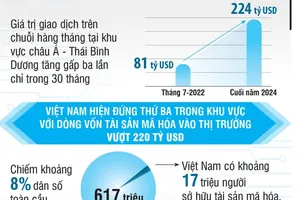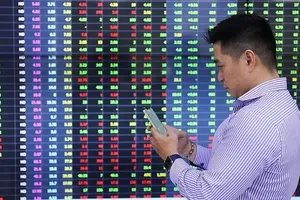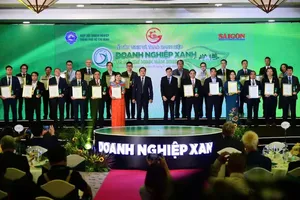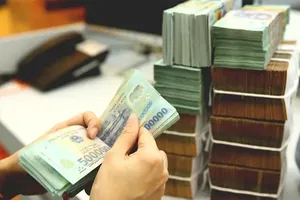
Nguyen Thi Kim Duong, who runs a popular pub on Ham Nghi Street in HCMC, shared her predicament. Her business operates late, often until 2:00 a.m. on holidays. “If our e-invoicing software crashes at that hour, there’s no technical support available. We have no choice but to wait until the next morning to issue the invoice,” she explained. “We live in constant fear of being fined.”
This anxiety is widespread. Other business owners, especially those who see their highest sales volumes on weekends and holidays, worry about the financial repercussions of a system error during peak hours. “The fine can be several times higher than the value of the invoice itself,” lamented Mr. K., another business owner. “If you have multiple violations, the total penalty can become enormous.”
Traders at wholesale markets also find the rule impractical. Their long-standing business model often involves consignment or credit-based sales, where goods might be returned and payments are not immediate, making the requirement to issue an invoice at the moment of goods transfer a major operational challenge.
Under current regulations (Decree 70/2025), an invoice must be issued at the time ownership of goods is transferred or a service is completed, regardless of whether payment has been received. Meanwhile, Decree 125/2020 stipulates fines ranging from VND3-8 million (US$118 - $314) for timing violations.
Tax experts agree that for businesses with multiple sales points or those operating outside of standard business hours, the “immediate issuance” rule is extremely difficult to comply with, placing them at a high risk of penalties.
Lawyer Nguyen Duc Nghia of the HCMC Union of Business Associations points to the real-world scenarios the law overlooks. “You have elderly business owners who rely on their children or grandchildren, who only come home on weekends, to help them issue invoices,” he said. He cited a shocking case where the management board of an HCMC condominium was fined a staggering VND119 billion ($4.67 million) for invoice violations, as the penalty was tallied for each individual bill.
“I propose amending the rule to allow a three-working-day window to issue an invoice after a service or delivery is completed,” Mr. Nghia argued. “This wouldn’t affect the amount of tax collected, so it’s a supportive measure rather than an overly rigid one.”
Vice Chairman Nguyen Ngoc Tinh of the HCMC Tax Consultants and Agents Association (HTCAA) shares this concern. He suggests shifting the penalty’s focus. Instead of fining for incorrect timing, he proposes penalizing for declaration in the wrong tax period (e.g. the wrong month or quarter).
“We must create favorable conditions for taxpayers and avoid increasing their compliance costs,” he stated. “With the current rules, businesses are stressed out just worrying about issuing invoices all day.”
One tax expert in HCMC commented that the regulation on the timing of invoice issuance challenges many businesses and business households to comply, leading to many being fined for issuing invoices at the wrong time. The fined amount can sometimes be very large even though the violation does not affect the amount of tax payable and does not cause tax loss. A more reasonable approach, they suggested, would be to levy a single penalty for the offense and apply aggravating factors for repeat violations, rather than calculating fines per invoice.
In a positive development, the Ministry of Finance is drafting a Decree to amend and supplement some articles of Decree 125/2020. A key proposal would change how timing violations are penalized as the act of issuing an invoice at the wrong time is excluded from the principle that “organizations and individuals committing multiple administrative violations shall be penalized for each violation.”
Specifically, if on the same day, a tax authority or other competent authority discovers that a taxpayer has committed an administrative violation regarding invoices for multiple invoices, they will only be penalized for one act corresponding to the number of violated invoices and the aggravating factor of multiple administrative violations will be applied.
























